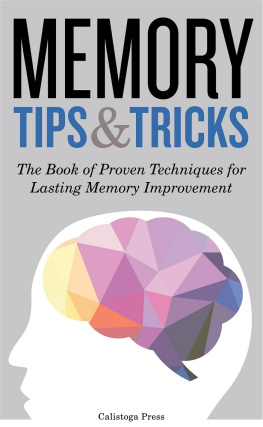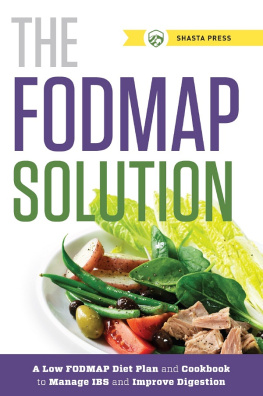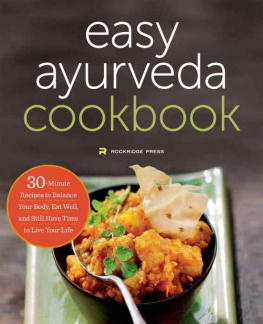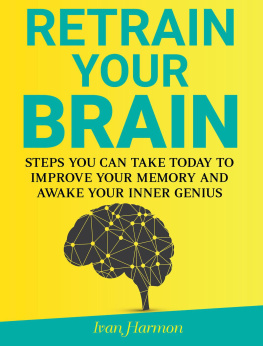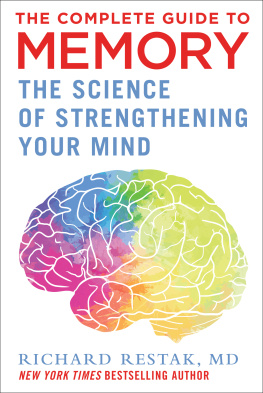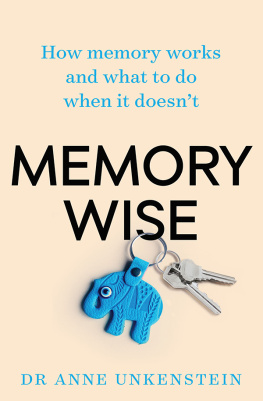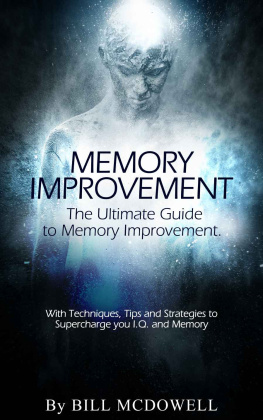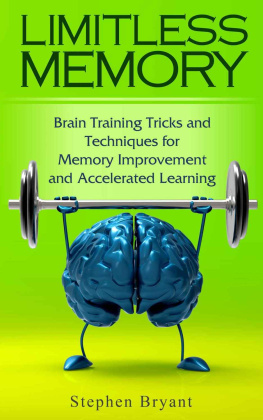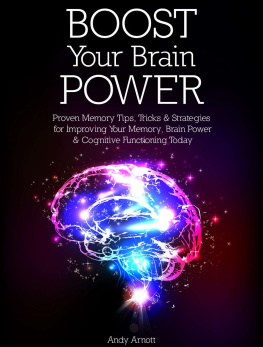Part One
Understanding Memory
PART TWO
Methods for Improving Memory
PART THREE
Advanced Exercises
Copyright 2014 by Calistoga Press, Berkeley, California
No part of this publication may be reproduced, stored in a retrieval system, or transmitted in any form or by any means, electronic, mechanical, photocopying, recording, scanning, or otherwise, except as permitted under Sections 107 or 108 of the 1976 U.S. Copyright Act, without the prior written permission of the Publisher. Requests to the Publisher for permission should be addressed to the Permissions Department, Calistoga Press, 918 Parker St., Suite A-12, Berkeley, CA 94710.
Limit of Liability/Disclaimer of Warranty: The Publisher and the author make no representations or warranties with respect to the accuracy or completeness of the contents of this work and specifically disclaim all warranties, including without limitation warranties of fitness for a particular purpose. No warranty may be created or extended by sales or promotional materials. The advice and strategies contained herein may not be suitable for every situation. This work is sold with the understanding that the Publisher is not engaged in rendering medical, legal, or other professional advice or services. If professional assistance is required, the services of a competent professional should be sought.
Neither the Publisher nor the author shall be liable for damages arising herefrom. The fact that an individual, organization, or website is referred to in this work as a citation and/or potential source of further information does not mean that the author or the Publisher endorses the information the individual, organization, or website may provide or recommendations they/it may make. Further, readers should be aware that Internet websites listed in this work might have changed or disappeared between when this work was written and when it is read.
For general information on our other products and services, or to obtain technical support, please contact our Customer Care Department within the United States at (866) 744-2665, or outside the United States at (510) 253-0500.
Calistoga Press publishes its books in a variety of electronic and print formats. Some content that appears in print may not be available in electronic books, and vice versa.
TRADEMARKS: Calistoga Press and the Calistoga Press logo are trademarks or registered trademarks of Callisto Media, Inc., and/or its affiliates, in the United States and other countries, and may not be used without written permission. All other trademarks are the property of their respective owners. Calistoga Press is not associated with any product or vendor mentioned in this book.
ISBN: Print 978-1-62315-377-9 | eBook 978-1-62315-378-6
Introduction
Its time to go to work, but youve misplaced your keys... again. You have an appointment with your doctor this afternoon, but you cant remember what time, or what you did with the appointment card. You have to plan tonights dinner, but you cant remember what you had for dinner last night. And what did your niece tell you she wanted for her birthday?
With all the things you have going on in your life, your head feels like its spinning. You manage a household, pursue a career, and raise children, but with so many people, places, and things to keep straight, it can be much harder to preserve energy for the smaller details in life, and that makes you feel as if you are losing your mindliterally. If youve ever found yourself looking into the refrigerator with no idea why you opened the door, or upstairs when you need to be downstairs, it may have crossed your mind that you should be tested for early-onset dementia.
Instead, its real life thats run amok, and its taken your memory with it. You dont need to resign yourself to relinquishing your power to the calendar on your smartphone; you want to be as self-sufficient as you used to be and remember details that, as of late, are falling right out of your head.
This book will help you do exactly that. The research, memory tools, tips, and techniques in the following pages were developed by experts who started out much like you, and include an ancient Roman poet, a seventeenth-century German linguist, a nineteenth-century psychiatrist, and a parade of mental athletespeople who circle the globe to compete in brain games such as memorizing the order of a shuffled deck of cards.
None of these people consider themselves exceptional, but they do share a couple of traits: the ability to create memorable images in their minds, and the willingness to invest their time in strengthening their capacity to remember.
In this book, youll be provided a brief but informative understanding of your most important muscleyour brainas well as how memory can be built up and why and when it atrophies. Also included is a short history of memory techniques and the modern research that has proven its value. Youll read about six important tools that form the foundation of memory improvement, each accompanied by examples of how these methods are used.
Finally, this book reveals some of the centuries-old, not especially secret methods the top memory champions use to perform feats of cognitive discipline that win world championships.
Still havent found your keys? Youre ready to get startedand if all goes well, youll never again get frostbite from staring too long at the contents of your refrigerator.
CHAPTER ONE
What Is Memory, and How Does It Work
In a laboratory at the University of Berlin in Germany, in 1879, a young scientist named Hermann Ebbinghaus struggled alone to memorize long strings of nonsense words, such as TIR or XUQ. Remembering words that had meaning wouldve biased the research, as Ebbinghaus could have potentially relied on his own knowledge and associations with the words meanings in order to recall them. To further ensure the test was completely random, he wrote these nonsense words on slips of paper, mixed them together, and drew them out of a container one at a time, creating lists of syllables with no specific pattern.
Ebbinghaus developed this research method in an attempt to prove that memory could be studied, even though his peers believed it was impossible. Using himself as the lone subject, Ebbinghaus read through several of the words and then attempted to recite them. He determined how many readings were required to memorize the string, based on the strings length and the time lapse between readings and recitations. What he concluded was that when a person did not attempt to retain new information, forgetting increased over timeknown famously as the forgetting curve. Ebbinghaus is also the father of the learning curve.
The published study shed the earliest light on an elusive function of the human mind: its ability to remember. Ebbinghauss resulting 1885 book, Memory: A Contribution to Experimental Psychology, launched a new field of scientific interest, one that led to a stronger and more cohesive understanding of memory and the ways that it can be influenced, preserved, and improved.
Since Ebbinghauss day, the study of memory has included everything from neuroimaging to studying the effects of stress, alcohol, sleep deprivation, inactivity, caffeine, artificial sweeteners, vitamins, minerals, Google, and many other influences on how we form memories and remember information.
Even before Ebbinghaus sat alone in his lab with his strings of nonsense syllables, philosophers and scientists puzzled over the workings of the human memory.
More than 2,300 years ago, Aristotle postulated that human beings are the sum of their experiences, born as blank slates onto which all of their memories are etched from birth to death. He referred to the memory in terms that became known as the storehouse metaphor, one that stood as the standard definition of memory for many centuries. Not until the Greek poet Simonides stumbled on a new theory of memory retention, the method of loci, did the perception of what memory is develop beyond the basic idea of storage and retrieval to the ability to associate objects with the place at which they appear. (For more on the method of loci, see .)
Next page
